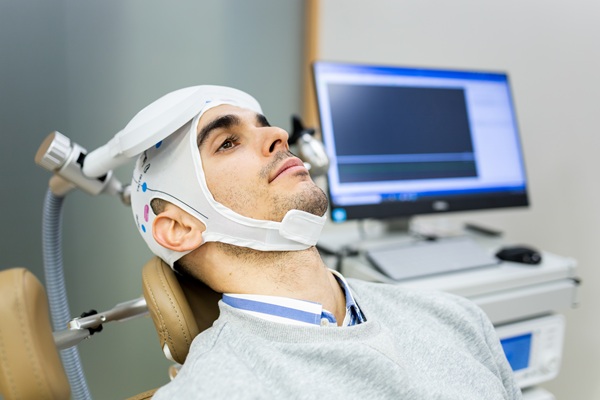FAQs About Ketamine IV Therapy for Depression

Curious about ketamine iv therapy? Read on to learn about this alternative treatment for depression. Medical usage of ketamine has existed for a long time. It was first developed as a veterinary anesthetic. Ketamine IV therapy has been shown to be an effective therapy in human patients with mood disorders and other mental health challenges.
Common questions about ketamine IV therapy
If you or someone you care about is thinking about getting this kind of therapy, you probably have many questions. To help you decide whether this therapy is suitable for you, the following are answers to some of the frequently asked questions about ketamine IV therapy for depression.
Is ketamine therapy effective?
When delivered slowly and in small dosages, ketamine is an effective medication that may reduce a range of symptoms linked with mental health problems. It works by enhancing the performance of brain neuro-pathways that convey impulses that are frequently adversely impacted by the symptoms of mental health concerns.
What conditions are treated with ketamine infusion?
Many people with mental health issues may benefit from ketamine IV therapy. Such issues include suicidal thoughts and actions, depression, anxiety, PTSD, stress, OCD, and bipolar disorder.
How is ketamine different from traditional treatments?
As a whole, mental illness encompasses a vast spectrum of problems that various intertwining factors may cause. Medications were extensively employed as a therapy option when the ones that targeted certain neurotransmitters proved to be effective. In many situations, the effects of these therapy methods have unfortunately been short-lived. Many individuals had short-term respite, succeeded by a relapse of symptoms and poor long-term improvement after treatment.
Ketamine revolutionizes the treatment of mental illness with an entirely different mechanism of action. Ketamine alters neural pathways to develop and strengthen healthy neurons rather than focusing on brain chemicals. When combined with other prescription medicines, ketamine IV therapy may improve the brain's response to the medications. Ketamine is an effective therapy on its own, but it may also boost the effects of any prescription medication.
Does ketamine IV therapy cause any discomfort?
Getting an IV injection of ketamine is not different from regular infusions. However, this therapy does not cause any discomfort or side effects other than the small pinching feeling from inserting the needle into the skin.
Is it possible to get addicted to ketamine?
There is no evidence that ketamine is addictive when given in a controlled setting, such as a ketamine infusion treatment.
What is the procedure for administering ketamine?
Patients will meet with a primary care physician for a consultation. This is to understand the procedure better and make an informed decision.
During the infusion, the patient will settle into a comfy chair. The medical professionals will take vitals and monitor the patient's progress every eight minutes during treatment. They may discontinue the IV drip at any time in case of any discomfort. In the end, it is best to arrive at the ketamine infusion session with a clear idea of the treatment goals.
Can one undergo ketamine therapy while using medications?
Yes. However, ketamine infusions may interact with several drugs, such as benzodiazepines, which are sometimes prescribed for patients with anxiety, depression, or seizure disorders. Ketamine therapy may begin only after a thorough medical evaluation. This evaluation is important to ensure the patient's current medications will not counteract the ketamine treatment or cause interactions.
What are the side effects of ketamine IV treatment?
Ketamine infusion treatment has very few side effects. Most individuals will not have any adverse reactions. However, some of the risks include nausea, exhaustion, paranoia, and a diminished appetite.
How soon can I expect to see the benefits of this treatment?
Infusions of ketamine have a rapid effect on the patient's body. Some patients begin to feel better within a few hours after receiving therapy. For others, it may take a few days before they begin to feel better and see their mental health symptoms reduce.
Is it safe to operate heavy equipment after taking this medication?
Patients are advised to rest for the rest of the day after ketamine IV therapy. After only one day, you should be able to resume your daily routine. For this reason, make sure you arrange a ride to and from your ketamine infusion session, but you can typically resume driving the day after.
The bottom line
If you are interested in exploring ketamine IV therapy, contact our clinic to schedule an appointment with a primary care physician who will help you go over your treatment options.
Get more information here: https://futurepsychsolutions.com or call Future Psych Solutions at (803) 335-5232
Check out what others are saying about our services on Yelp: Ketamine IV Therapy in Columbia, SC.
Related Posts
Depression can be difficult to manage, particularly for those who do not respond to traditional antidepressants and other methods. In these cases, spravato for depression offers a new and effective psychiatric treatment option. This FDA-approved medication, also known as esketamine, is administered as a nasal spray under medical supervision. It has shown remarkable results for…
Treatment-resistant depression can leave patients feeling stuck, even after exploring different medications and approaches to therapy. The good news is that TMS therapy, or transcranial magnetic stimulation, offers a new way forward. This innovative and noninvasive psychiatric treatment aims to restore healthy communication between brain regions responsible for mood, emotion, and focus, providing a path…
Ketamine therapy is an effective treatment method for treatment-resistant mental conditions, such as depression, anxiety disorders, and post-traumatic stress disorder (PTSD). However, common misconceptions may prevent individuals from choosing this treatment and obtaining the relief they need. Our team is here to dispel the three most common myths surrounding ketamine therapy so you can make an…
Adult psychiatry can help bring relief to those struggling with their mental health. Psychiatrists complete specialized training in treating various mental disorders, from clinical depression to anxiety, and more. Whether you or a loved one has been diagnosed with a mental disorder or does not know what the issue is, psychiatric treatment may help. Below…


